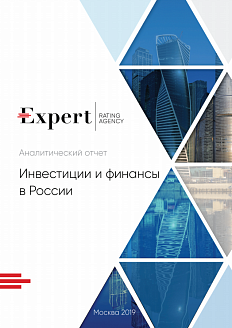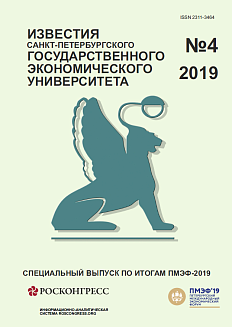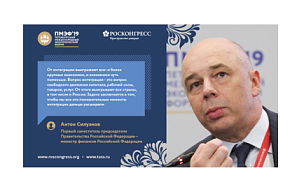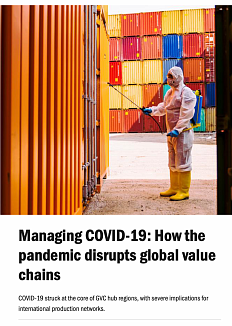The International Agency for Sovereign Development (IASD) was established in 2019 to assist the governments of Russian partner countries, African states in particular, in carrying out economic reforms, attracting investments in international financial markets, and unlocking the potential for increasing shareholder value of the regions major corporations.
The agencys mission is to improve the quality of economic growth and increase the national prosperity of the countries with which we work. This requires that their sovereignty be strengthened and opportunities be provided for an independent domestic and foreign policy. The most important condition for success is financial and economic independence. Real sovereignty begins, first of all, with economic sovereignty.

Could you please tell us more about where you see modern manifestations of restrictions in the sovereignty of African states?
A significant portion of Africas current external debt comes in the form of loans from international financial institutions. Loans of this kind are generally accompanied by significant socio-economic, financial, and political demands made upon African countries. When all of the extra burdens have been taken into account, the effective cost of this kind of financing can end up being much higher than the official interest rates.
Consequently, in contrast to the official goals, the actual result can lead to under-utilization of economic growth potential, deterioration in the quality of this growth, a limitation of access to other sources of financing and, ultimately, the imposition of limitations to sovereignty.
Direct loans also have a negative side. They require the provision of collateral, are often accompanied by political requirements, and lead to demands for the procurement of particular goods and services.
In other words, these are restrictions related to the practice of borrowing at the state level.
Not just that. The same observations apply to business. Africa can boast tremendous natural mineral wealth, with official estimates approaching USD 3 trillion, excluding Algeria and Libya. And much has yet to be explored. Nevertheless, where are the largest African mining companies? Or at least mining companies? Given a resource base of this kind, they should rank among the globes top 5. Instead, we see the top stops occupied by international companies: Rio Tinto, Glencore, BHP Billiton, and Anglo American, among others.
It is a situation that has been created artificially and deliberately. It is a modern form of economic colonialism.
Trans-national companies pump resources out of third world countries and capitalize them on liquid stock markets with significantly higher multiples. Meanwhile, developing countries become markets for finished products with high added value and high interest rate dollar borrowers.
Another tool to limit sovereignty and competition is Western sanctions. 70 countries are presently under one form or another of sanctions that restrict their access to capital markets and include Sudan, Mali, Zimbabwe, Burundi, the Democratic Republic of Congo, and Somalia among others.
Do you see any way out of the current situation? What is your recipe for success for African states?
Russia was in a similar situation in the 90s but was able to pull out of it thanks to President Putin. Our past mistakes have brought us considerable experience, and we are willing to lend a helping hand to our African friends.
The recipe for a prosperous African economy is simple. Firstly, it includes more active use of international capital markets and a decrease in dependence on international financial institutions. Investments in infrastructure projects will give a boost to the entire economy.
A significant part of Africas existing sovereign debt could be restructured on more favourable terms and replaced by issues of unsecured Eurobonds.
Economic imbalances must be levelled out, and profit from the extraction of African subsoil resources must make its way back to the continent.
Major public and private companies must be created in Africa, with an increase in their capitalization and investment attractiveness, and the assets must be consolidated to make them an independent centre for raising capital.
To accelerate expansion into international capital markets, key state assets could be combined under the umbrella of sovereign wealth funds. This is another potential type of quasi-sovereign borrower.
It is necessary to stop the practice of selling deposits of natural resources to foreign companies for pennies. The African states can, among other things, develop mineral deposits of this kind on their own with financial resources that we can help them to attract. The industry expertise and technology that are lacking can now be bought at a cost of millions of dollars and not billions.

What kind of services does the agency specialize in? And what are the target markets?
Key agency clients are the governments of developing countries. We specialize in advising on economic reform and key asset restructuring. We restructure existing debt and attract new sovereign and quasi-sovereign debt and equity financing in international capital markets.
We increase the shareholder value of major corporations. We advise on the creation and enhancement of the effectiveness of sovereign wealth funds and also specialize in international mergers and acquisitions.
The Agency operates in Africa, the Middle East, Southeast Asia, and Latin America.
How favourable is the situation for attracting investment in international financial markets for African countries?
Western financial markets are currently in a situation of near-zero interest rates. A quarter of the global bond market, that is, approximately USD 15 trillion, is trading in the negative yield area. In this context, investor interest in African financial instruments is quite high.
We can see that sovereign Eurobonds have been gaining popularity in Africa in recent years, though it is insufficient. Bonds make up less than 1/3 of current external debt, and more than half of African countries still do not have access to this source of capital.
It is widely believed that African countries are debt- ridden. This misconception is based on the traditional Debt/GDP multiplier. Formally, for countries of the Sub-Sahara this indicator averages around 50%. However, for a number of reasons, including transfer pricing and the transfer of profit points from Africa to Western markets, the real level of GDP is much higher than that used for calculations of this sort.
The current unused borrowing capacity of African countries exceeds USD 100 billion. More than USD 200 billion of existing debt can be refinanced under less difficult conditions. These resources could be used to solve key infrastructure problems such as the construction of railways, electrical power facilities, etc.
In addition, high «African risks» are more a matter of perception than reality. Investors willing to delve a little deeper into the particularities of working in Africa receive a substantial premium on invested funds.

Investment banks such as Citi, Deutsche Bank, and JP Morgan are already operating in Africa. What competitive advantages does the International Agency for Sovereign Development offer?
They are not our direct competitors. We serve as a consultant to governments on higher level issues and the range of tasks that we deal with is much wider. These are large-scale reforms aimed at strengthening economic sovereignty and include transforming entire industries and attracting financing in international capital markets.
Unfortunately, most of the investment banks that currently operate in Africa do not represent the interests of African countries, serving instead a certain group of investors and trans-national mining companies. These banks are one of the groups responsible for the modern policy of neo-colonialism in place in the African continent, and it is in their interest to maintain the status quo.
Moreover, they can be subject to a conflict of interest: though they work with individual sovereign borrowers on single transactions, they work with investors and Western mining companies on a regular basis. When pricing sovereign debt, they are not necessarily interested in ensuring that a country receives the lowest possible rate.
The International Agency for Sovereign Development is free of this drawback and in any transaction acts exclusively in the interests of its clients, the African states. We want Africa to develop and provide comprehensive consultations on the acquisition of real economic sovereignty.
Do you plan to offer support for Russian companies interested in expanding into Africa?
African countries are very interesting and attractive in terms of the development of potential, minerals, and labour and consumption markets. The Agency does, therefore, also intend to act as a consultant for Russian companies interested in working together.
Energy and transportation infrastructure could possibly pose the greatest interest for Russian companies in Africa. Russia is a partner of strategic importance to Africa. First, the USSR actively and at its own expense supported the national liberation struggle. Secondly, many African specialists studied in the USSR and look back on those years of Soviet- African friendship with feelings of nostalgia. Finally, unlike China, Russia does not intend to bring its own labour to Africa to carry out projects, thus avoiding negative social consequences.
What African countries does the agency work with? What are the first projects we should expect to see?
We are in active negotiations with a number of African states, primarily in Central and West Africa. We are not ready to disclose any details yet, but we expect that the first deal the organization of the placement of sovereign debt for one African country will be announced in the near future. The actual placement is planned for the beginning of 2020.






